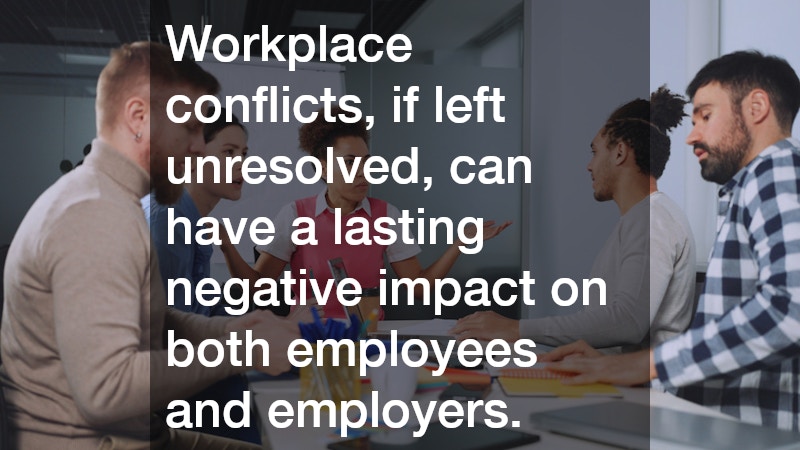Workplace conflicts are an inevitable part of any professional environment. Differences in opinions, misunderstandings, and interpersonal issues can escalate if not addressed promptly. When conflicts linger, they can reduce productivity, harm employee morale, and even lead to costly legal disputes. This is where mediation comes into play, offering a structured and effective approach to resolving issues without the need for litigation. A general mediation master solution to employment disputes can help organizations manage conflicts efficiently while maintaining a positive work environment.
By providing a neutral platform for open discussion, mediation encourages transparency, fosters mutual understanding, and ensures that both parties feel heard, ultimately creating a foundation for stronger workplace relationships and long-term organizational success.
Understanding Mediation in the Workplace
Mediation is a voluntary process in which a neutral third party, known as a mediator, helps employees and employers work toward a mutually acceptable resolution. Unlike formal legal proceedings, mediation is collaborative rather than adversarial. The mediator facilitates communication, encourages understanding, and helps identify common ground. This process can be particularly valuable in employment disputes, where relationships between employees and management must continue after the resolution.
Using a structured mediation approach allows both parties to express their concerns openly. By fostering dialogue, mediation helps uncover underlying issues that may have contributed to the conflict. This method not only addresses immediate problems but also promotes long-term improvements in workplace dynamics. When done correctly, it can prevent minor disagreements from turning into major disputes that disrupt workflow and strain professional relationships.
Cost and Time Efficiency
One of the primary advantages of a general mediation master solution to employment disputes is cost and time efficiency. Traditional legal action can be expensive and time-consuming, involving multiple hearings, legal fees, and potential appeals. Mediation, on the other hand, typically requires far less time and financial resources. Companies can resolve conflicts more quickly, which minimizes disruption to daily operations and reduces the financial burden on both parties.
Moreover, mediation allows for flexible scheduling. Unlike court proceedings that operate under strict timelines, mediation sessions can be arranged at mutually convenient times. This flexibility ensures that conflicts are addressed promptly, preventing issues from escalating further. Businesses benefit from a faster resolution process, while employees feel heard and respected, which contributes to a healthier workplace culture.
Confidentiality and Privacy
Confidentiality is another significant benefit of using a mediation approach. Employment disputes often involve sensitive issues, such as allegations of misconduct, workplace harassment, or contractual disagreements. A general mediation master solution to employment disputes ensures that discussions remain private, protecting the reputations of both employees and employers. Unlike court cases, which are part of the public record, mediation sessions are confidential, reducing the risk of public scrutiny and preserving workplace harmony.
This privacy also encourages honesty and transparency during the mediation process. Employees and management are more likely to share their true concerns when they know the discussion will not be disclosed outside the session. This openness allows mediators to identify the root causes of conflicts and develop solutions that are acceptable to all parties involved.
Promotes Collaboration and Improved Relationships
Mediation is not just about resolving disputes; it is also about rebuilding relationships. A successful mediation process encourages collaboration, understanding, and mutual respect. Employees learn to communicate more effectively, recognize the perspectives of others, and find common ground. Over time, these skills contribute to a more positive organizational culture, strengthen team cohesion, and reduce the likelihood of future conflicts.
For employers, mediation provides valuable insights into organizational issues that may have contributed to workplace tensions. By addressing these concerns proactively, management can implement policies and practices that foster a healthier work environment, boost morale, and encourage employee retention. This proactive approach benefits the entire organization, improving engagement, reducing turnover, and enhancing overall productivity, while creating a workplace where employees feel supported and motivated.
Flexible and Tailored Solutions
Unlike standard legal rulings, mediation allows for flexible and creative solutions tailored to the specific needs of the parties involved. Agreements reached through mediation can address not only the immediate conflict but also broader issues such as workflow processes, job responsibilities, and workplace expectations. This adaptability makes mediation a practical option for a wide range of employment disputes, from interpersonal disagreements to contractual or performance-related conflicts.
Workplace conflicts, if left unresolved, can have a lasting negative impact on both employees and employers. Adopting a general mediation master solution to employment disputes provides an effective, confidential, and cost-efficient method for resolving these issues. By fostering open communication, promoting collaboration, and offering flexible solutions, mediation helps maintain a positive work environment and strengthens professional relationships. Organizations that embrace mediation not only resolve conflicts more efficiently but also create a culture of understanding and cooperation that benefits everyone involved. Additionally, mediation encourages proactive problem-solving, reduces stress, and enhances overall employee satisfaction, making it easier for teams to work together harmoniously. For companies looking to manage disputes constructively, mediation is a practical and powerful tool to achieve lasting results.

